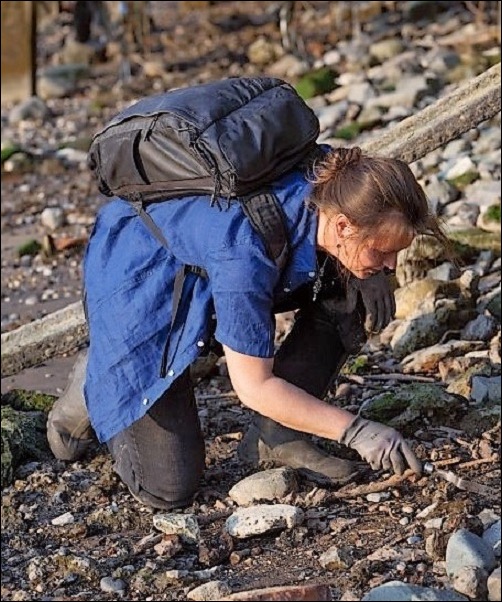Guest post by local historian Philip Grant
Mudlarks scavenging beside the Thames, from a 19th century engraving.
In the 18th and 19th centuries it was not unusual to see boys from destitute families searching through the mud of the heavily polluted River Thames. They were looking for scraps of anything they could sell, bones, metal or coal, to make a few pennies and put some basic food on the table. They earned the name “mudlarks”, after a bird (officially a magpie-lark) that makes its nest from mud, which sailors returning to the Pool of London had seen on voyages to Australia.
Modern mudlarks search the shores of the Thames as a hobby (with permits from the Port of London Authority), looking for interesting objects which provide details from London’s history. These can date back to Roman times, or earlier, and any find of archaeological interest is reported to the Museum of London. One of these mudlarks is giving a talk at Wembley History Society on Friday 17 March:-
Many of the items which today’s mudlarks uncover are not treasure, but modern rubbish which has found its way into the river because too many of us don’t dispose of it the way that we should. But with practice, and advice from experienced mudlarks, a trained eye can often spot something older, and even have a good idea of what it might be. It will be fascinating to learn from Monika what she has found, and to see a selection of these items.
Monika engaged in her mudlarking hobby.
Wembley History Society welcomes visitors, not just to its members, to its talks, so that any local resident, young or old, who may be interested can enjoy them as well (there is a small charge, to help cover costs). Details are on the poster displayed above.
Philip Grant























.jpg)